Our pet rabbits must have a balanced diet to maintain their health and well-being. As pet owners, we must know and understand what foods are safe. Not all foods are safe for them; some are toxic and may cause severe health problems or, worst, become fatal when ingested.
As pet owners, we love to give treats to our rabbits occasionally, and a safe option for treats is a small amount of fruit. But are all fruits safe? Can rabbits eat kiwis?
Today, let’s understand a rabbit’s diet and whether or not we can include kiwis in their diet.
Understanding a Rabbit’s Diet
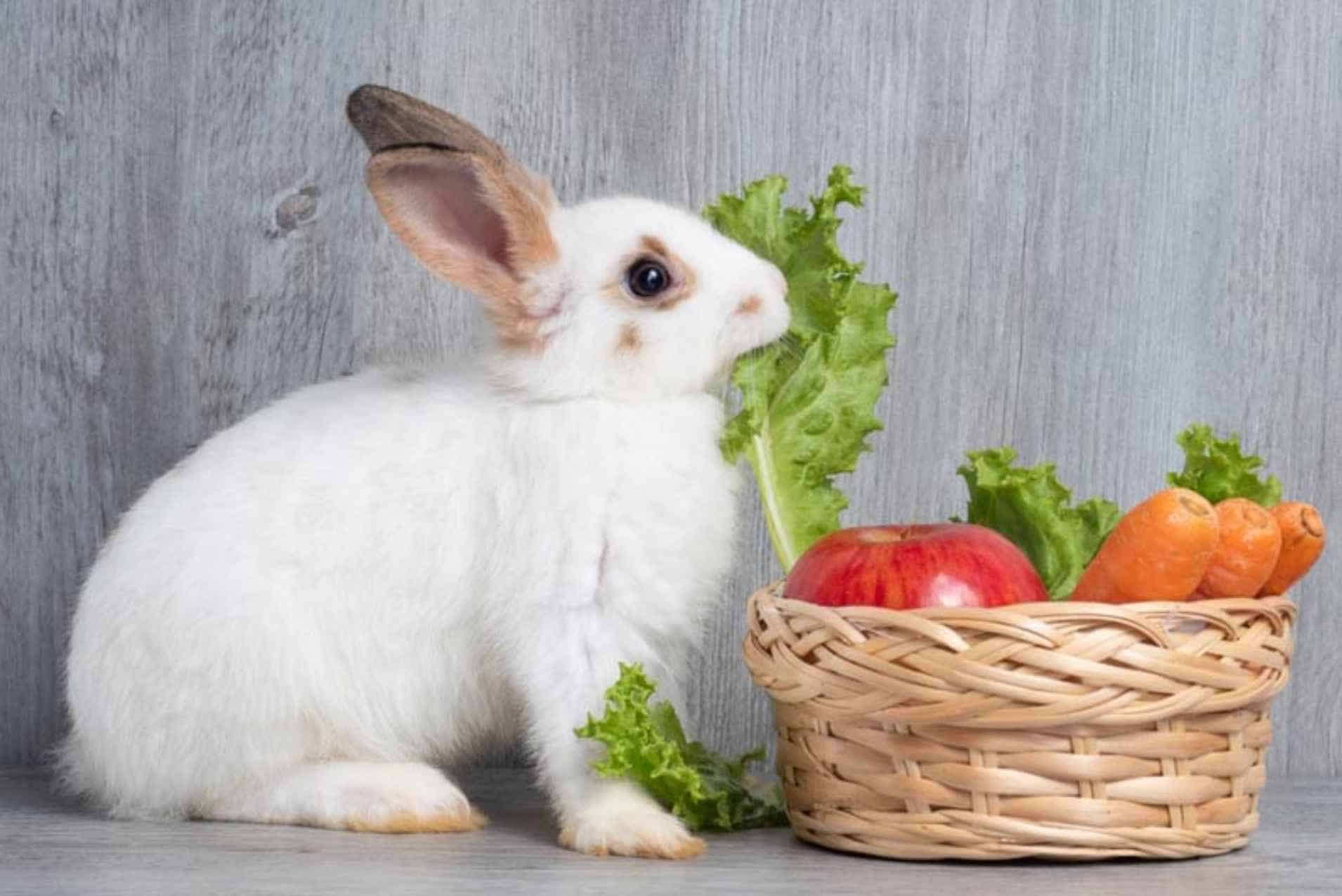
Like any other species, rabbits have nutrient requirements that can be met by having certain ingredients in their diet. A healthy diet for rabbits is a majority of good-quality hay and grass.
In cartoon animations, we may see rabbits enjoying carrots. However, in real life, root vegetables and fruits are only healthy in small portions. You can supplement the hay or grass with green leafy vegetables or a few pellets.
Ensure the vegetables and grass are safe by washing them thoroughly. You also have to note that some herbs and weeds poison your rabbit. So be vigilant about what you serve!
How much you feed your rabbit depends highly on its weight. You must adjust its feeding quantity to prevent them from becoming overweight or underweight.
The ideal diet for your rabbit should consist of 80% good-quality hay, 15% vegetables and greens, and 5% pellets. Within the 5% pellets, you can include treats like fruits. But giving them fruit daily, even in small amounts, can be detrimental.
You have to space out and keep the quantity in small amounts. In this way, you give your rabbit’s digestive system time to sort out and regulate the sugar and carbohydrates from the fruit.
Giving your rabbit fruits or vegetables as treats are better than muesli-style foods. If you give your rabbit some pellets, read the manufacturer’s instructions.
Can Rabbits Eat Kiwi?
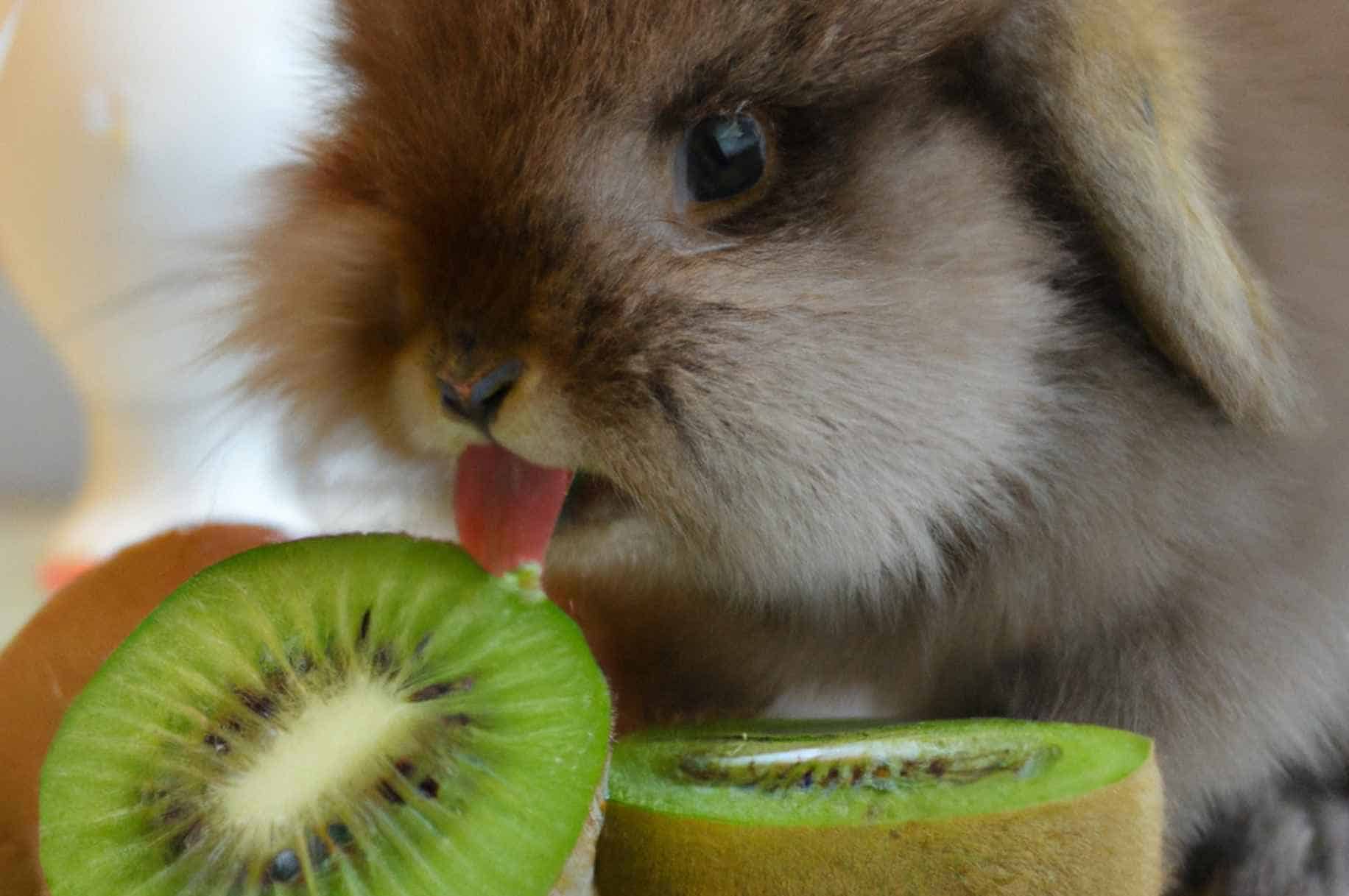
Yes. Rabbits can eat small amounts of kiwi but on occasion. Kiwis are reasonably healthy, but there also have a relative amount of sugar and carbohydrates that may upset the rabbit’s digestive system.
Your rabbits can eat the kiwi’s skin, but you must be cautious. Most of the rabbit’s diet is hay which is full of fiber. If you feed too many kiwi skins, they might no longer have any appetite for hay.
Some kiwis have been treated with chemical pesticides. The best way to ensure that it is safe for consumption is to buy organic kiwis. Organic kiwis do not have any traces of pesticides on the kiwi skin.
Kiwis have tiny seeds. These seeds are not harmful to your rabbits. So you do not have to worry about scraping them before giving them kiwis.
However, there is an exception when it comes to Kiwis. Do not feed your rabbit dried kiwis or any dried fruits. Dried fruits contain more sugar because of their reduced water content. Only offer fresh fruits to ensure your rabbit does not suffer from digestive upset.
The safe amount of kiwis your rabbit can have is half teaspoon size, and only once or twice a week. If you give your rabbit another kind of fruit along with kiwi, you should consider the total amount of fruits, as even small amounts of multiple fruits can cause a problem.
It is best to count the total quantity of fruits you have fed rather than count them individually.
Benefits of Kiwi to Rabbits
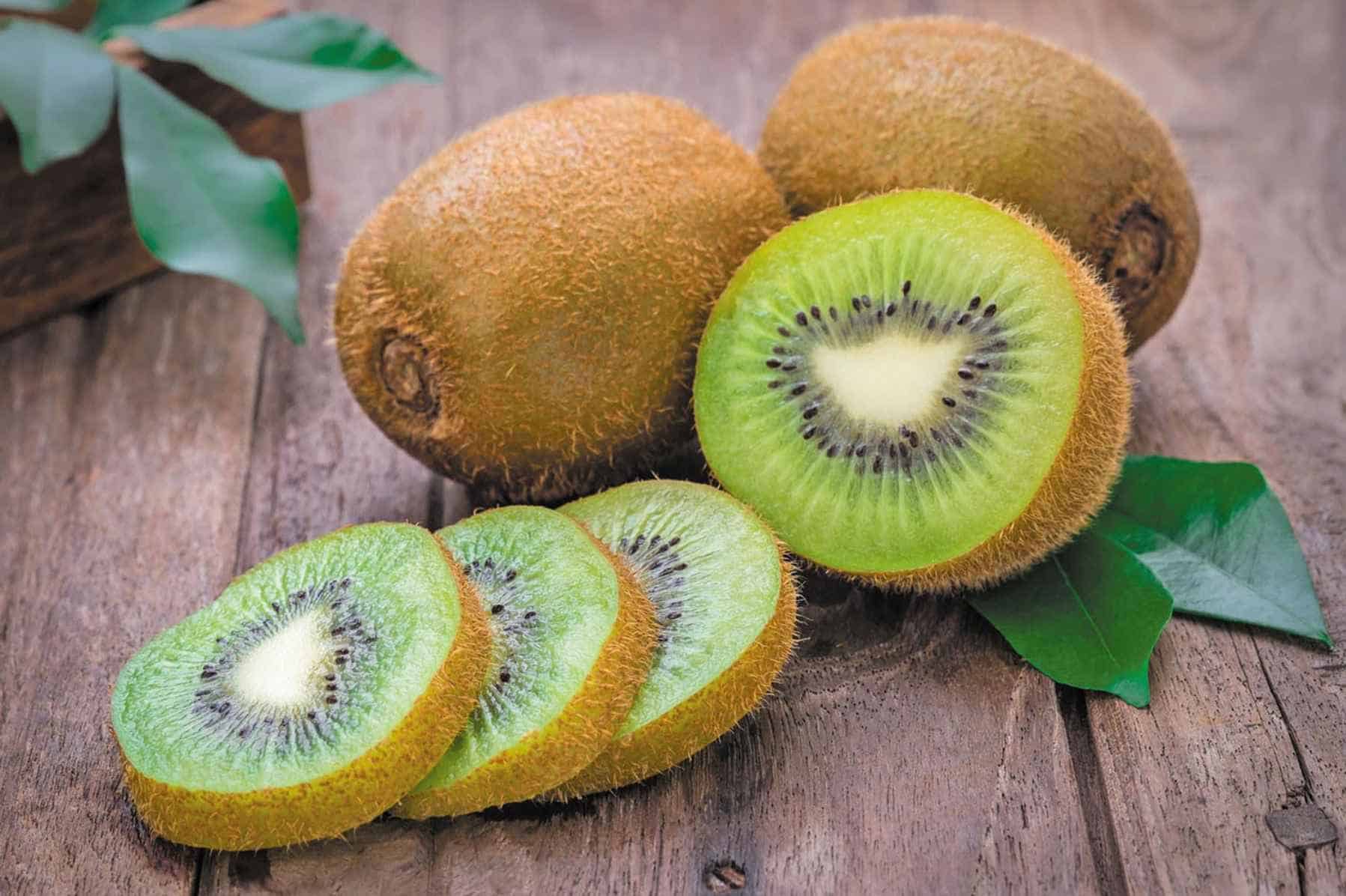
Kiwis store a lot of nutrients that rabbits can benefit from. Following are the benefits of giving small amounts of kiwis to your pet rabbits.
Rich in vitamin C
Kiwis are rich in vitamin C. While rabbits can synthesize vitamin C, they need an additional boost to help their immune system and collagen production.
Good source of fiber
Rabbits are prone to gastrointestinal stasis that may result in serious health issues. Giving them kiwi is beneficial as it is a good source of dietary fiber. Kiwis can help maintain healthy gut motility and support overall digestive health.
Antioxidant properties
Kiwis are rich in antioxidants, including vitamins C, E, and other phytonutrients. Antioxidants help neutralize the harmful free radicals in your rabbit’s body. It supports the immune system and reduces the risk of your rabbit having chronic diseases.
Hydration benefits
Kiwi is a hydrating fruit for rabbits. It has a high water content. The hydration support in kiwis can help urinary tract problems in rabbits.
Besides the essential nutrients kiwi has, it may provide some benefits for exercising your rabbit’s jaw muscles, but caution is advised as the sugar and acids in kiwis, if consumed excessively, may lead to dental problems.
Knowing these benefits, you can tell that kiwis are beneficial to rabbits. But, even so, you still have risks and considerations to know.
Pertains to Medium-Sized Kiwi Nutrition (approximately 76 grams)
| Nutrient | Amount | Effect on Rabbits |
|---|---|---|
| Calories | 42 kcal | Provides energy |
| Total Fat | 0.4 g | Minimal effect; rabbits need little fat |
| Saturated Fat | 0.0 g | / |
| Cholesterol | 0 mg | / |
| Sodium | 2 mg | Essential in small amounts |
| Total Carbohydrates | 10 g | Source of energy |
| Dietary Fiber | 2 g | Aids in digestion |
| Sugars | 6 g | Must be limited; too much may lead to digestive issues |
| Protein | 0.8 g | Essential for growth and repair |
| Vitamin A | 1% of RDI | Supports vision and immune system |
| Vitamin C | 117% of RDI | Boost immune system |
| Vitamin E | 10% of RDI | Antioxidant; supports immune function |
| Vitamin K | 38% of RDI | Important for blood clotting |
| Potassium | 215 mg | Supports heart and muscle function |
| Calcium | 2% of RDI | Essential for bone and teeth health |
| Iron | 1% of RDI | Important for blood production |
| Magnesium | 6% of RDI | Supports bone health and energy production |
| Folate (Vitamin B9) | 10% of RDI | Important for cell function and tissue growth |
Risks and Considerations When Feeding Kiwi to Rabbits
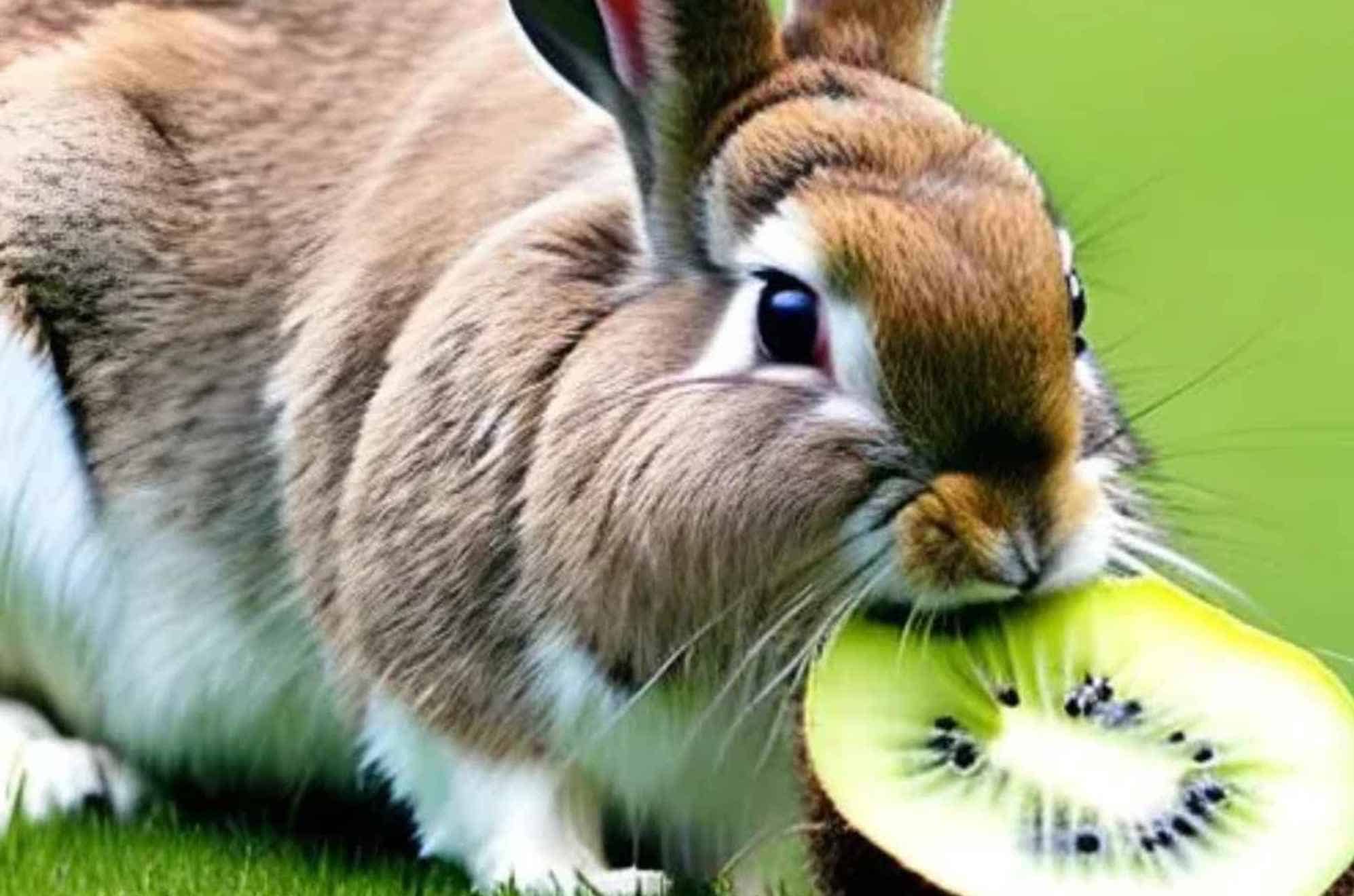
Each rabbit is unique. Some may have sensitivities when you introduce a new food to them. As kiwi could be strange to your rabbit, you need to check these potential risks and considerations:
- High sugar content. Kiwis have relatively high sugar content compared to other rabbit-friendly fruits and vegetables. High sugar consumption may cause digestive upset, obesity, and other health issues in rabbits. Hence, only give kiwis occasionally. It is not a part of their regular diet.
- Potential digestive issues. Some rabbits may be more sensitive to high fiber and sugar on kiwis. It may cause stomach upset, diarrhea, or bloating in your rabbits. If you notice these digestive issues, do not feed the kiwi and consult the vet.
- Rabbits can also develop allergies to kiwis. Allergic reactions may manifest as itching or skin irritation. If this happens, do not feed the kiwi and call your vet.
- Kiwis may also be detrimental to the dental health of our rabbits. As it contains sugar and acids, if consumed excessively, it may lead to dental problems.
Giving treats to our pet rabbits could be rewarding. But we have to prioritize their well-being. Consult a vet for specific recommendations to their dietary needs and any potential risks when feeding kiwis.
How to Properly Feed Kiwi to Rabbits
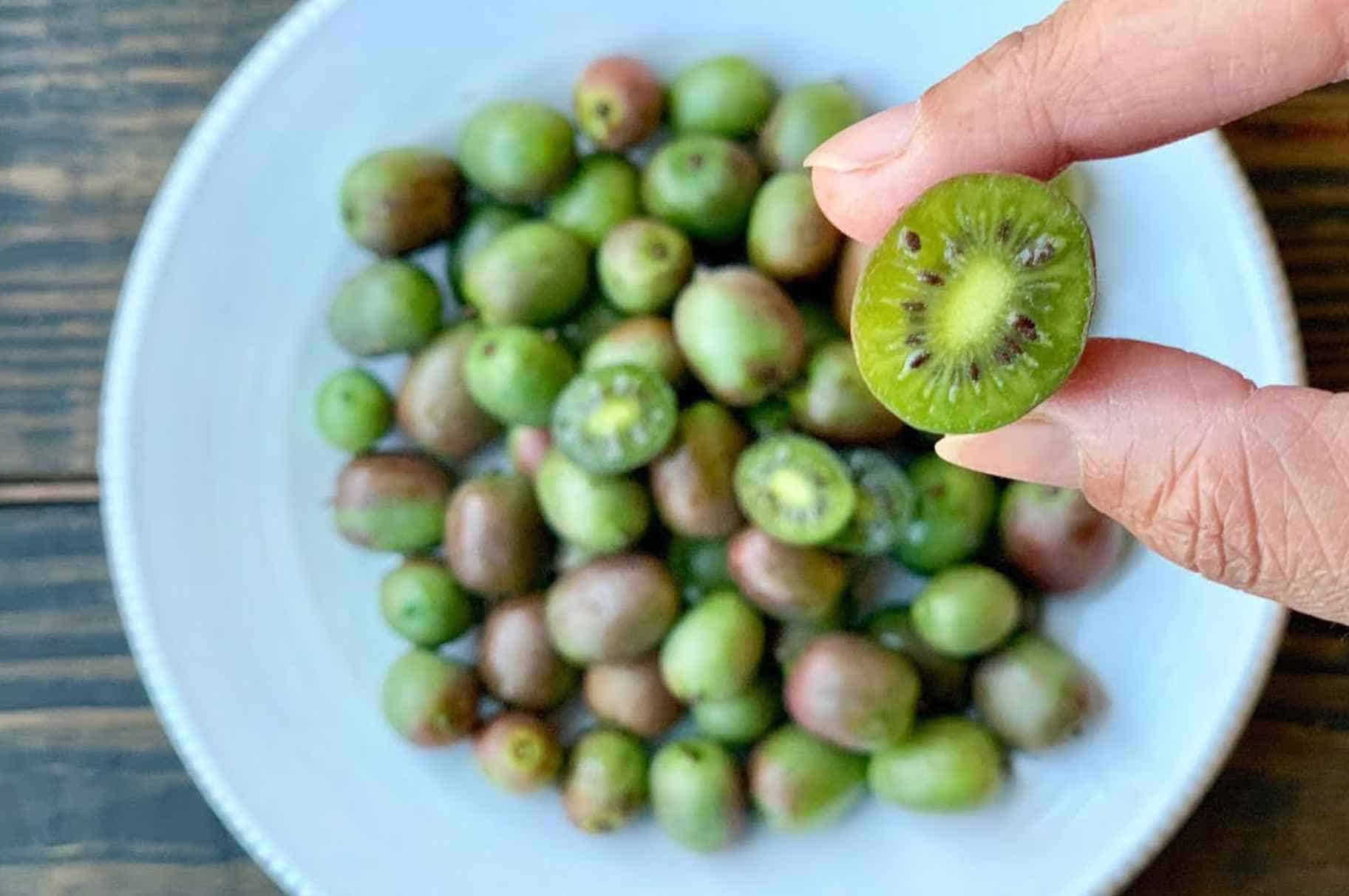
Introduce kiwi to your rabbit’s diet gradually and in moderation. Give the kiwi slowly and in small portions to help your rabbit’s digestive system adjust to the new food. Half a teaspoon of kiwi is enough to know if your rabbit likes kiwi and observe for any signs of stomach upset or allergies.
Choose a ripe kiwi fruit. Do not give an overripe or underripe fruit to your rabbit. You can tell if it is on the correct ripeness because the kiwi will feel slightly soft. Before handing the kiwi, rinse it thoroughly and cut it into small, bite-sized pieces.
Thoroughly rinsing the kiwis removes any debris or possible harmful pesticides on the fruit. Also, cutting the kiwis into small pieces prevents choking hazards and makes it easier for your rabbit to eat.
Monitor your rabbit’s behavior and stool consistency after letting it have a kiwi. Stop feeding your rabbits kiwi if you notice signs of bloating, discomfort, or diarrhea.
If your rabbit likes kiwis and does not experience any digestive issues, you can give them in moderate amounts. Kiwi is not a staple diet for rabbits. It is only an occasional treat. Only feed them a teaspoon-sized portion once or twice a week.
Other Rabbit-Friendly Fruits and Vegetables
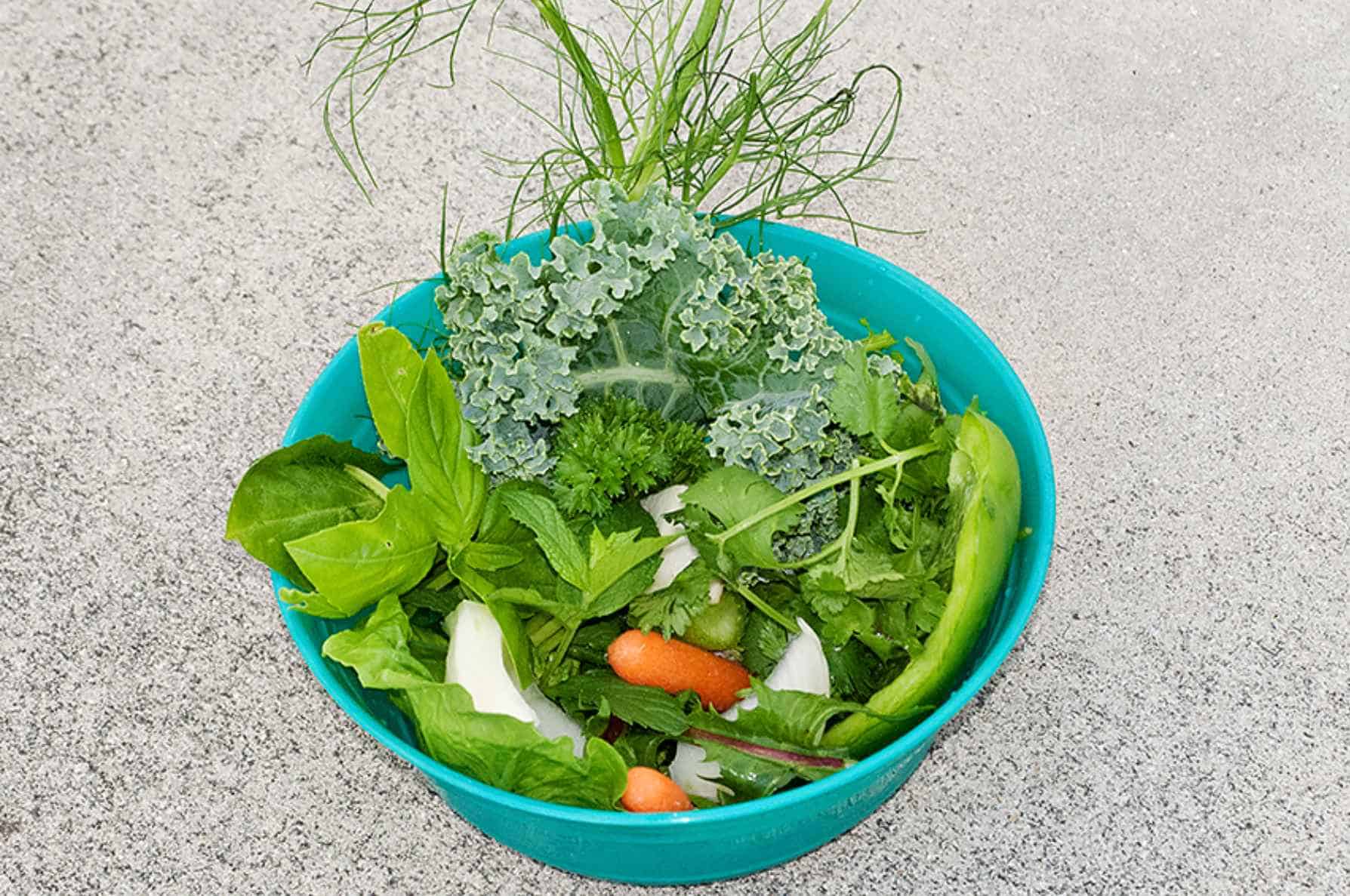
A balanced diet for rabbits contains high-quality hay and grass, but we can provide small treats of vegetables and fruits. Your adult rabbits can have 2 cups of fresh vegetables daily. We recommend the following vegetables:
- Bell pepper
- Basil
- Cilantro
- Parsley
- Brussels sprouts
Besides kiwi, there are also rabbit-friendly fresh fruits. However, only give them this treat once or twice a week.
- Watermelon
- Pineapple
- Grapes
- Banana
- Orange
- Pear
- Berries
- Melon
Another point to remember when giving fruits and vegetables to your rabbit is the possible use of chemical pesticides when growing them.
Seek and Consult a Vet
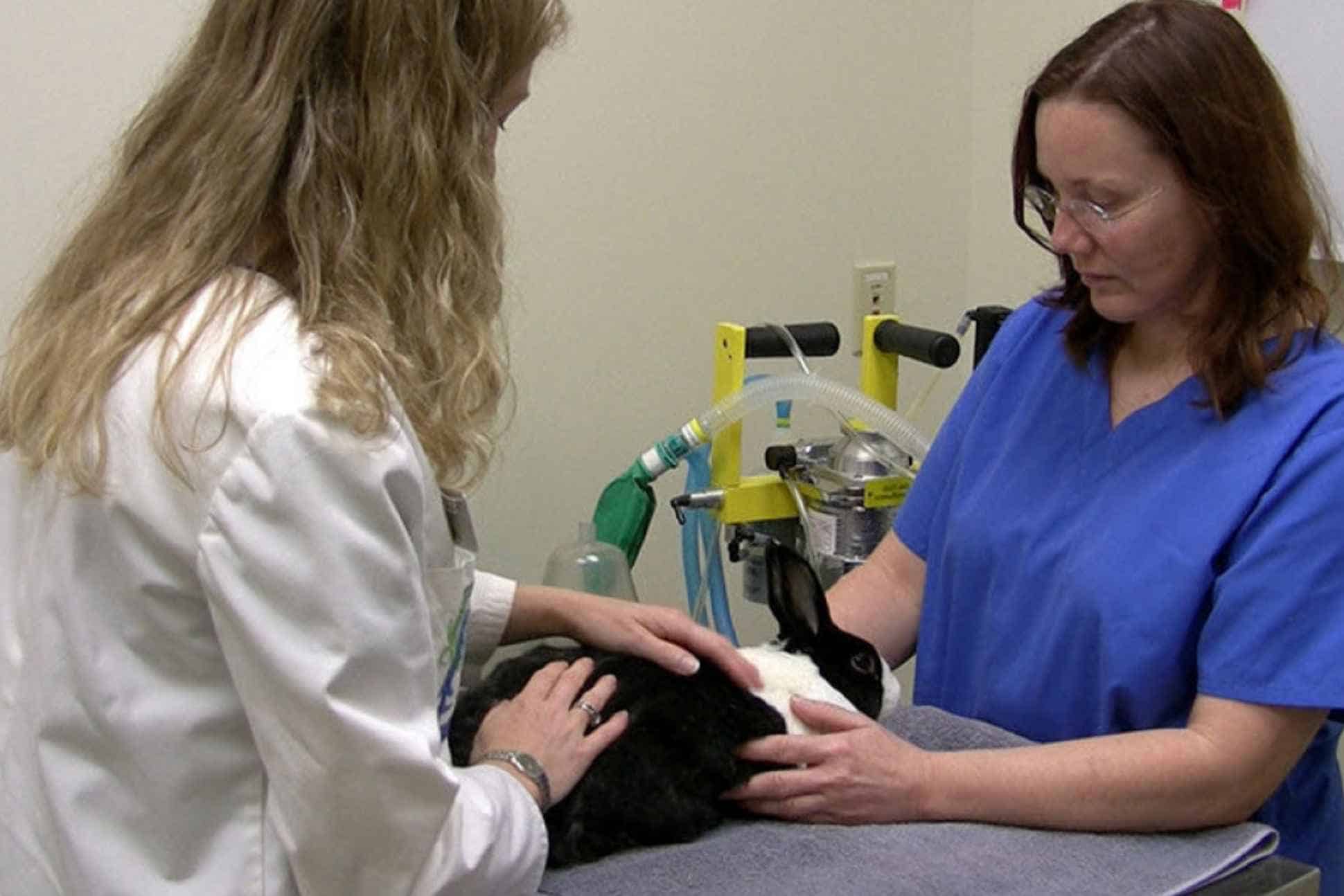
Even when we have agreed that rabbits can eat kiwis, every rabbit is unique, and their dietary requirement may vary. So, if you are unsure about introducing new food to your rabbits, it is better to call your vet.
Let your vet assess your rabbit’s health, dietary needs, and potential risks associated with kiwi consumption. Your vet will provide instructions on safe food alternatives and possible diet modifications.
You also have to monitor the amount your rabbits eat and drink. If their eating habits change, you will notice their droppings become less. Some may have soft droppings that will stick to your rabbit’s back. If these happen, your rabbit may be seriously ill. Bring your rabbit to the vet immediately.
Conclusion
Rabbits can eat kiwis. It can be one of the occasional treats to give them a varied diet. However, you must remember that kiwis are only healthy in small amounts. Even if kiwis are rich in nutrients, feeding your rabbits with excessive quantities of kiwi would be harmful.